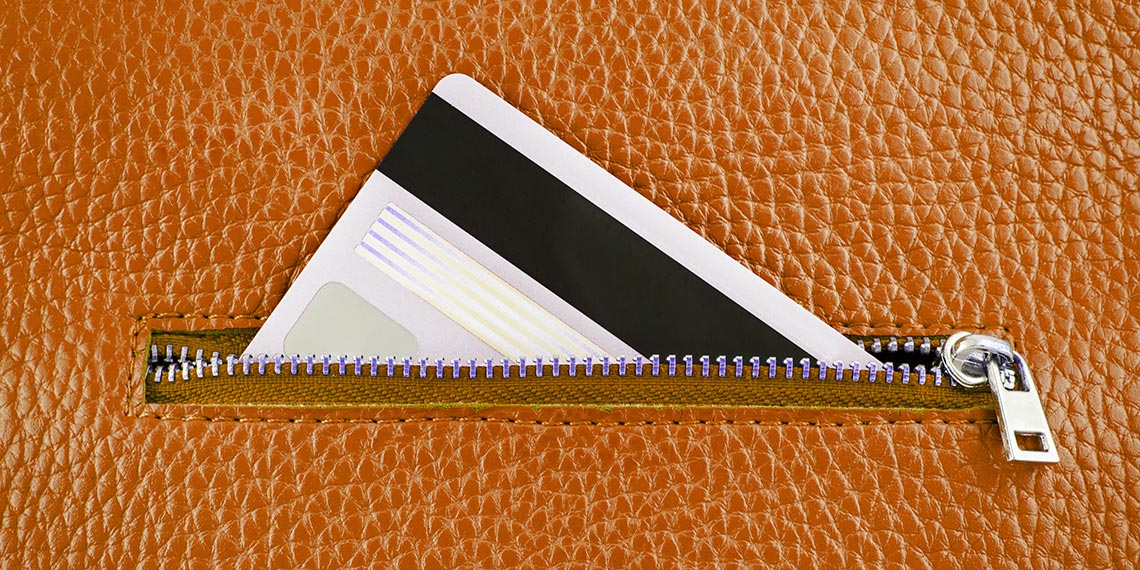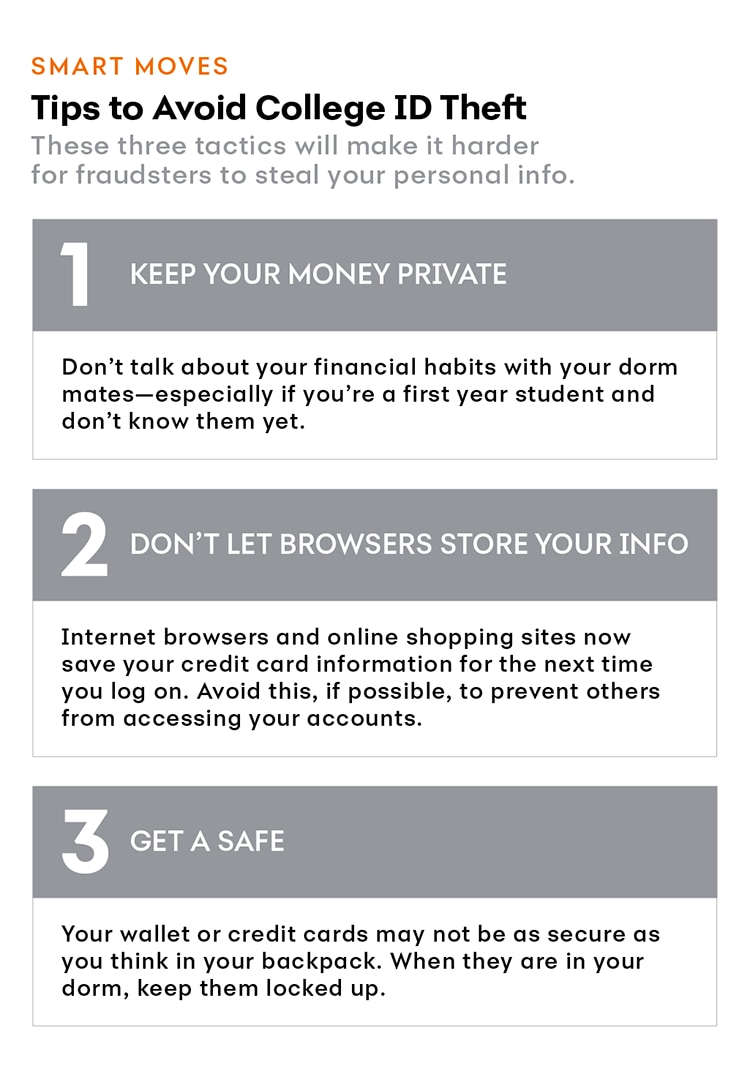
When Zach Bailey* left home to attend college, he planned to use a credit card—with a monthly spending limit of $500—to pay for food, books and school supplies. For the then-18-year-old from Hawaii, it was his first credit card.
But shortly after arriving at school in Texas, Bailey tried to use the card and discovered it was maxed out. Confused, he thought he’d underestimated his spending, perhaps splurging more on groceries than he realized. Bailey used cash for the rest of the month. When he pulled out his credit card at the grocery store early the next month, however, it was maxed out again.
“I started using only cash,” he says. “But still more and more charges were showing up.”
Finally, in November, Bailey got serious about solving his financial mystery. He scoured his credit card statements and started calling every company listed that he didn’t recognize. Thanks to his sleuthing, he was able to pinpoint the source of the fraudulent charges: his roommate.
The roommate had used Bailey’s name and credit card number for numerous online purchases totaling about $2,000—but the thief had used his own email address, which allowed Bailey to trace the charges. Bailey reported the details of the identity theft to his school, but says the school’s administration took no action, citing a need to avoid “prejudicial” treatment of the roommate.
Bailey also reported the case to police, who started investigating and ultimately arrested the roommate. Despite the investigation, Bailey says school officials wouldn’t let him switch rooms. Fearing that his roommate would steal from him again, Bailey started keeping his important belongings in a friend’s room.
“It was pretty devastating,” he says. “You definitely feel violated.”
The roommate eventually was prosecuted and given six months of probation, Bailey says. But the stress of living with someone who’d stolen from him proved to be too distracting for Bailey, who decided to leave school before the end of the year.
Although he was disappointed by his college’s lack of response, Bailey praises the help he received from his bank’s customer service representatives, who helped him during the process. They answered his many calls and helped him track down necessary documents and information. His bank also reversed all the fraudulent charges, ensuring Bailey wasn’t on the hook for his roommate’s online shopping spree.
Bailey also learned important lessons that can help others from being victimized in the same way. Even in places that seem safe—like a college dorm room—it’s critical to protect your personal items and sensitive information. And diligently reviewing credit card statements each month can help you spot unusual charges—and arm you with information to stop potential theft more quickly and restore your finances.
*Not his real name.

This chart is in the category "Smart Moves" and the title is "Tips to Avoid College ID Theft." The description reads "These three tactics will make it harder for fraudsters to steal your personal info." There are three bullets. 1. Keep Your Money Private. Don’t talk about your financial habits with your dorm mates—especially if you’re a first year student and don’t know them yet. 2. Don’t Let Browsers Store Your Info. Internet browsers and online shopping sites now save your credit card information for the next time you log on. Avoid this, if possible, to prevent others from accessing your accounts. 3. Get a Safe Your wallet or credit cards may not be as secure as you think in your backpack. When they are in your dorm, keep them locked up.
Emily E. Smith is a freelance writer in Bozeman, MT. She writes for national and regional publications on topics ranging from personal finance to crime to wild animals. Her work has appeared in the The Guardian, Smithsonian magazine and Atlas Obscura.
Get tips on how to avoid ID Theft from Stolen Property.

